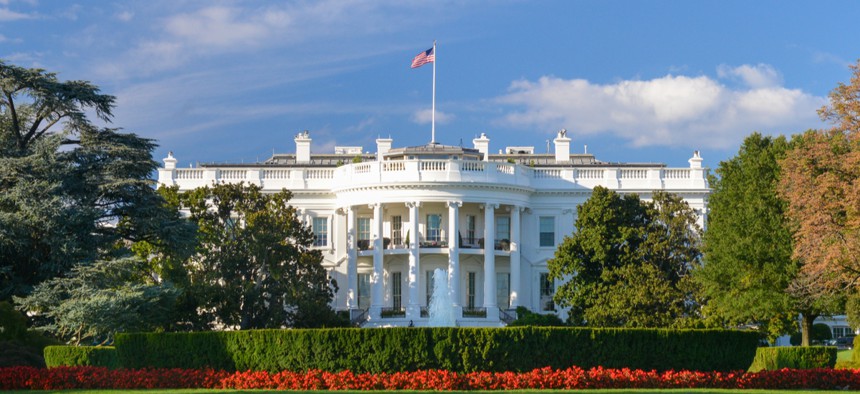16 Things OMB Wants Agencies to Accomplish in the Data Strategy's First Year

Orhan Cam/Shutterstock.com
Agencies and other stakeholders have until July 5 to comment on the draft action plan, which includes hard deliverables for all of government.
The Trump administration Tuesday released a draft of the first one-year action plan, which will establish hard deliverables for agencies to attain as part of the Federal Data Strategy.
Along with the draft action plan, the Office of Management and Budget also released the final versions of the principles and practices it expects agencies to follow with regard to gathering, using, protecting and engaging with data.
The finalized strategy issued Tuesday covers the first two-thirds of the larger Federal Data Strategy: the principles that guide how agencies think about data and specific practices that can further those efforts. The third pillar—the action plan—is only in draft form, with a comment period open for the next 30 days.
Suzette Kent, the federal chief information officer and one of the leaders on the cross-agency priority, or CAP, goal on leveraging data, said the strategy looks to move all federal agencies toward one goal: “To harness data across the government to solve meaningful citizen challenges.”
“Like any lofty goal, we are looking both strategically and tactically,” Kent said during a call with reporters Tuesday. “We have to start with the basics and invest and build a rock-solid foundation. The framework that we’re sharing today supports raising the bar for consistency of skills, interoperability and the best practices for how agencies use and manage data.”
All this will be enforced through annual action plans issued by OMB that will list out proactive steps agencies need to take within the year a given plan is released.
“The draft Year-1 Action Plan describes the steps that are viewed as fundamental during the first year to execute the full breadth of the Federal Data Strategy over time,” according to the document.
The plan includes concrete deliverables for each agency to work on, as well as broad, governmentwide actions facilitated by multiple agencies working together. The plan also includes “shared actions” that will be led by single agencies but are likely to benefit the whole of government.
The draft plan suggests 16 actions that should be taken within the first year:
Shared Actions
- OMB should create an OMB Data Council by November.
- The General Services Administration should develop a curated data science training and credentialing catalog by February.
- GSA should develop a data ethics framework by November.
- The Federal Committee on Statistical Methodology, with direction from the Interagency Council on Statistical Policy and the Education Department, should develop a data protection toolkit by August 2020.
- GSA should develop a repository of Federal Data Strategy resources and tools by November.
- The Federal Statistical Research Data Center Program Management Office, Census Bureau and Commerce Department, under the direction of the Interagency Council on Statistical Policy, should pilot a one-stop standard research application by August 2020.
- The National Center for Education Statistics and Education Department should pilot an automated inventory tool for Data.gov by August.
- GSA should pilot standard data catalogs for Data.gov by February.
Community Actions
- All agencies should improve data resources for artificial intelligence research and development by February.
- The President’s Management Council should improve financial management data standards by August 2020.
- The Federal Geospatial Data Committee should improve geospatial data standards by August 2020.
Agency-Specific Actions (all agencies)
- Constitute a diverse data governance body by September.
- Assess data and related infrastructure maturity by May.
- Identify opportunities to increase staff data skills by May.
- Identify data needs to answer key agency questions by August 2020.
- Identify priority datasets for agency open data plans.
Agencies and other interested parties have until July 5 to offer comments on the draft action plan, which is scheduled to be finalized in August.
“Our goal is enabling data-driven insights to inform how we manage the government; how we apply human capital, financial and other resources; but most importantly how we better serve mission and serve our citizens,” Kent said.
The finalized portions of the strategy maintain the 10 principles initially proposed, but whittles down the number of practices slightly, from 47 to 40. Combined, the practices focus on three objectives: building a culture that values data and promotes public use; governing, managing and protecting data; and promoting efficient and appropriate data use.
The broad objectives used to organize the principles have changed, as well, slimmed down from five to just three. The finalized objectives merge the effort to better govern and manage data with the requirement to protect that data, and incorporates stakeholder needs within building a culture of data stewardship.
Nick Hart, CEO of the Data Coalition, which will be hosting a forum with OMB to get feedback on the draft, said crafting an enterprise strategy that also includes specific tasks is no easy feat.
“Many agencies are already taking steps to implement the requirements of the Foundations for Evidence-Based Policymaking Act, even before the formal guidance has been issued by the White House,” he told Nextgov. "But the action plan goes a step further, setting the floor for some core activities that agencies should be expected to prioritize over the coming year.”
Editor's Note: This story has been updated with comments from the Data Coalition.






